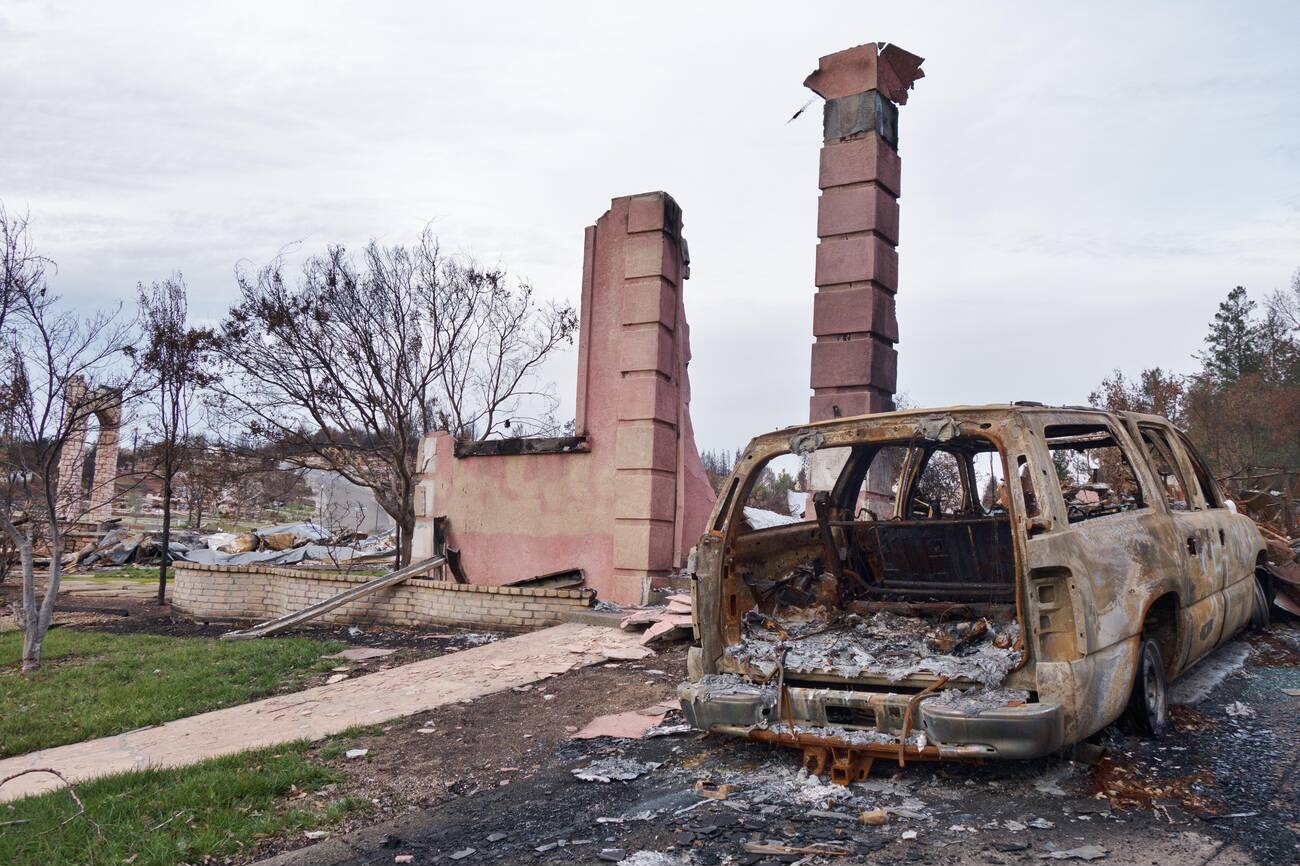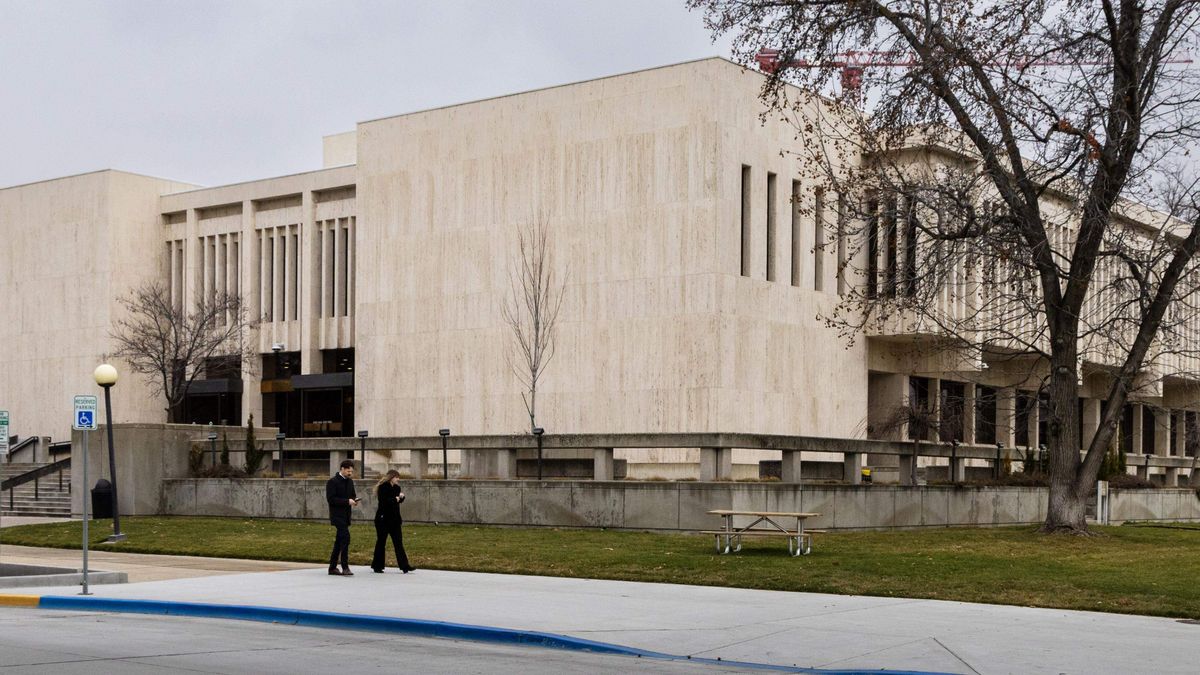By Marisa Endicott and Andrew Graham, The Press Democrat, Santa Rosa, Calif., (TNS)
The long-suffering effort to exempt victims of utility-sparked wildfires from paying federal taxes on compensation for their losses cleared a major hurdle late Wednesday.
“Today is a milestone,” said Jennifer Gray Thompson, a key advocate for the measure, which was approved 357-70 by the U.S. House of Representatives as part of a bipartisan tax deal that included fire victim tax relief.
“Getting it to this step was a two-and-a-half-year, bipartisan, bicameral effort. Plus the countless hours dedicated by wildfire survivors,” said Gray Thompson, who is CEO of After The Fire USA, a nonprofit that helps communities navigate wildfires and their aftermath.
Fire victims spent years advocating and waiting for restitution from Pacific Gas & Electric Co. after its equipment ignited a series of blazes, including the 2017 North Bay firestorms and the 2018 Camp Fire, that devastated Northern California communities.
When payments finally went out from the Fire Victim Trust—the settlement fund established from PG&E’s bankruptcy to pay people who’d lost homes, businesses and loved ones—victims learned they would have to fork over a portion to the Internal Revenue Service. And because the compensation suddenly bumped up their income for the year, some have been forced into higher tax brackets, jeopardizing essential benefits like health insurance discounts.
It’s been yet another blow to those who will likely never be made whole by the fund, which cannot cover victims’ losses in full.
Reps. Mike Thompson, D-St. Helena, and Doug LaMalfa, R-Richvale, introduced legislation to relieve the federal tax burden in 2022, but have faced a series of roadblocks. The first version of the bill passed the House but was blocked when Senate Minority Leader Mitch McConnell rejected lawmakers’ attempts to attach it to a government funding package. The California Legislature, meanwhile, quickly and easily passed a parallel effort to eliminate state taxes on settlement payments in 2022.
Last year, different versions of the federal legislation were put forward after an initial bill stalled out in the House Ways and Means Committee. The latest iteration made it through, though not without obstacles, and was eventually incorporated into the $78 billion Tax Relief for American Families and Workers Act of 2024. While immensely impactful for fire victims, the bill is by and large a minor component of the tax package, which contains provisions ranging from a child tax credit to special taxation rules for certain residents of Taiwan.
“Today’s strong bipartisan vote to provide essential tax relief to fire survivors is an important step toward recovery,” Thompson said in a joint statement after the House vote. “The Senate must swiftly consider and pass this bill so that our fire survivors receive the tax relief they desperately need.”
In its latest form, the bill will provide tax relief on wildfire-related settlement payments received after Dec. 31, 2019 and before Jan. 1, 2026. Over time and as supporters sought votes, the legislation expanded include compensation related to last February’s train derailment in East Palestine, Ohio.
The tax package must pass the U.S. Senate before heading to President Joe Biden’s desk. Though the deal could still face significant challenges, Gray Thompson of After The Fire USA is confident about its chances.
She’s led multiple trips Washington, D.C., to lobby for tax relief in the last year. During the most recent trip in January, she and other advocates focused on Senate buy-in. California Sen. Alex Padilla will be championing the effort in its next chapter, but Gray Thompson said she expects bipartisan support.
“There’s always a risk that something could go wrong … but we feel confident that the groundwork has been done to get us across the bow,” Gray Thompson said. “We were persistently and abundantly clear that we don’t have time to wait another year or two, and I think they heard us.”
The idea is for relief to pass before taxes are due in April. But whenever the legislation makes it into law this year, it is written so that victims can file amended tax returns going back three years to recoup what they lost to federal coffers.
Some fire victims are more gun-shy than Gray Thompson given the disappointments to date.
“I’m hopeful, but I’m trying to temper my enthusiasm based on what I’ve seen,” said 2017 Tubbs Fire victim and advocate Will Abrams. He’s particularly concerned about the fighting that might accompany a larger tax package with so many components to it, not to mention “the general dysfunction of Congress right now.”
Richard Lane, another Tubbs Fire survivor who has been a vocal advocate for the tax relief measure, echoed that sentiment, but said he’s been encouraged by Thompson’s and LaMalfa’s redoubled efforts in the past few months.
In the end, “we know that we’ve done all we can do for ourselves,” Lane said. With each setback, fire victims have ratcheted up pressure, sending thousands of letters to members of Congress, meeting with legislators and attending community events to boost awareness. And, though he hopes it doesn’t come to it, if the legislation fails, “we’ll start over again. The resolve isn’t going anywhere.”
_______
(c)2024 The Press Democrat (Santa Rosa, Calif.). Visit The Press Democrat (Santa Rosa, Calif.) at www.pressdemocrat.com. Distributed by Tribune Content Agency LLC.
Thanks for reading CPA Practice Advisor!
Subscribe Already registered? Log In
Need more information? Read the FAQs




